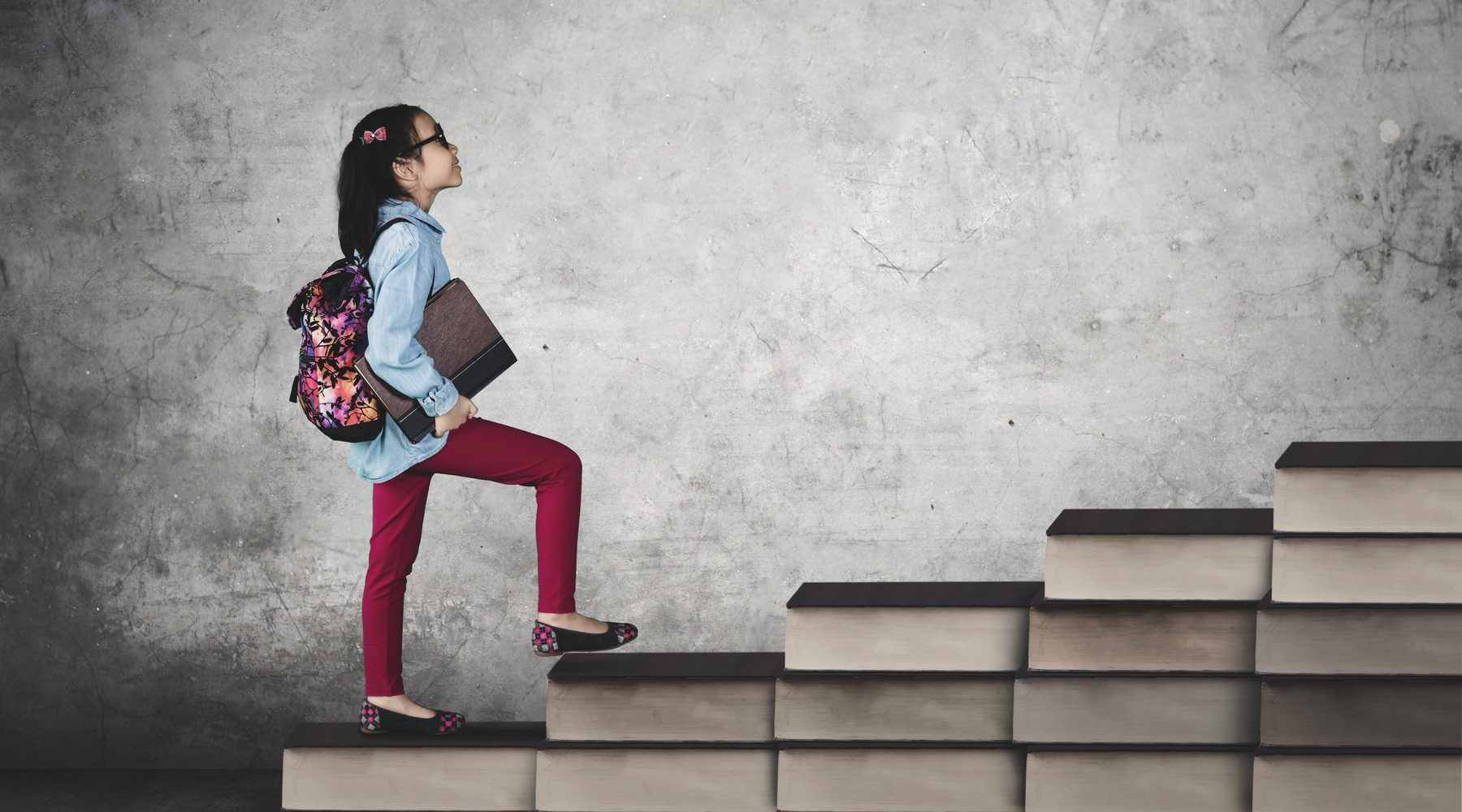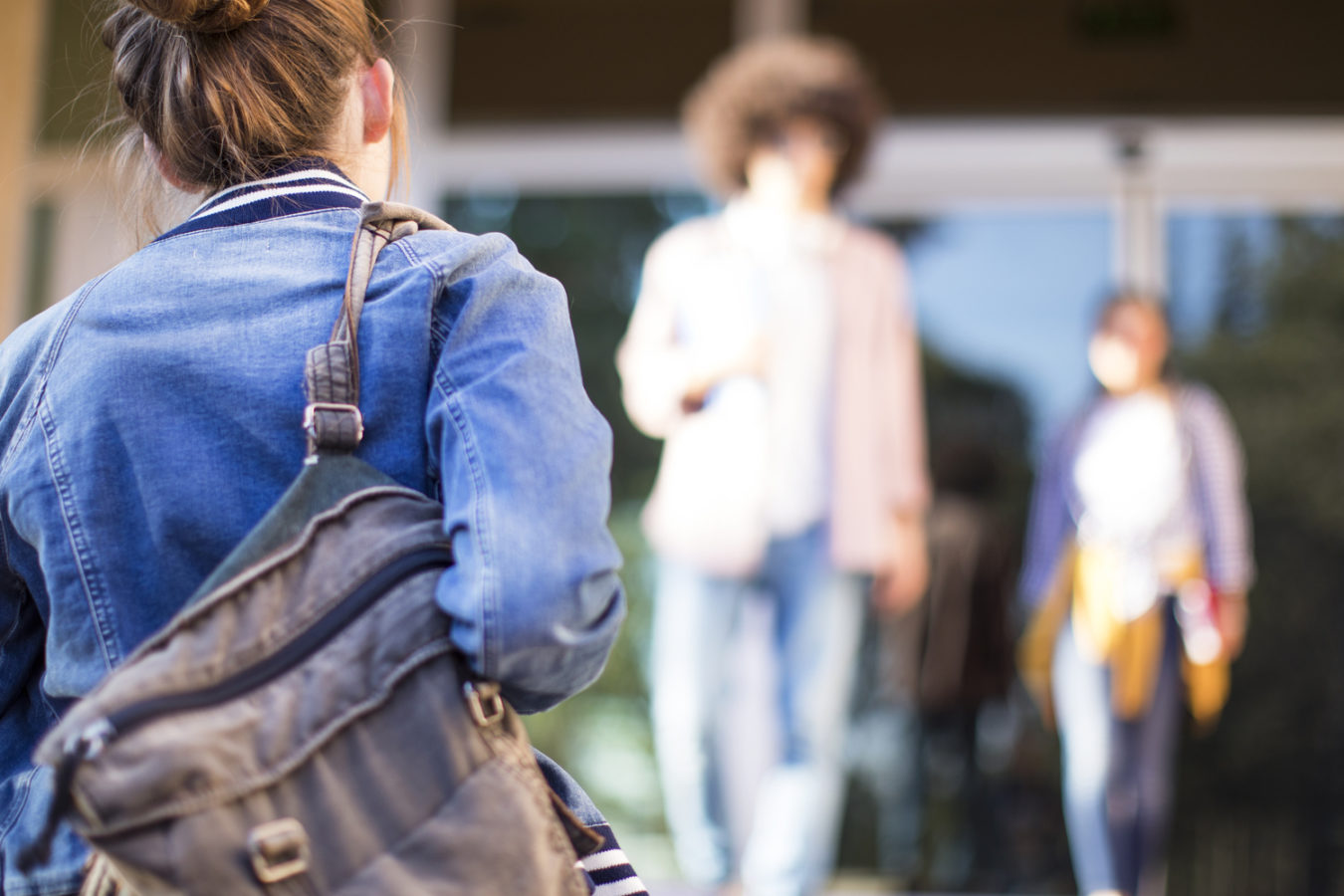
Our Grade 6 students have missed out on many of the experiences of being the 'big kids' at primary school. But as Peter Hanlon discovers, they have also learnt some valuable life lessons.
Throughout the back-and-forth, classroom-to-kitchen-table odyssey that school in 2020 has become, it’s been impossible not to feel for students at the bookends of the spectrum.
The Year 12s, for all they’ve missed – academically, socially, or in simply being with their peers as they draw away from childhood and embrace the dawn of adult life. And the Preps, whose first year of school has been so disjointed they must wonder if it’s even begun.
The biggest learning curve of their lives
Yet there is another cohort who have been denied a typical rite-of-passage year, one that effectively marks ‘half-time’ in their education journey. For the Year 6s, that longed-for opportunity to be ‘the big kids’ through their last year of primary school has largely been denied them. In a flash they will be secondary students, and the juniors of the school yard once more.
They have our sympathy, but as Christ Church Grammar School principal Neil Andary notes, the challenges they’ve faced in recent months mean they may have experienced the biggest learning curve of their lives.
‘Children are resilient, particularly primary-aged kids,’ says Neil, who joined the South Yarra school this year after a long stint as head of the preparatory school at Prince Alfred College in Adelaide.
They will in the main get to secondary school next year and just leap in and be fine. They’re ready.
How the positives will outweigh the negatives
‘I think we can overplay the idea that this is a year that’s wasted and children have missed out on lots. I think they’ve learnt a lot more about themselves, a lot more about resilience. They’ve learnt a lot more about being with family and in family.’
Since they returned to class in October, Neil and his staff have noticed more children walking or riding their bikes to school. Even without the organised sport that for many provides rhythm through their teens, he senses they are ‘more able’. The positives, Andary is convinced, will ultimately outweigh what the pandemic has denied them.
The two-pronged nature of Year 6 has been front of mind for principal Thierry Clarisse at Erasmus Primary in Hawthorn, too.
Like Neil he is confident everything has been done to give students the academic platform needed to underpin their shift to secondary schooling. The social-emotional aspect has been more challenging, so a broader focus on leadership – beyond traditional school and house captains – has been invaluable.
We’ve changed the format of the school day for them, to make it a little more fluid and give them a sense of independence, so they can actually plan their day,’ Thierry says. ‘They’re still responsible for the work, they can prioritise what they want to do first, second, third etcetera. We’re confident it will bridge that gap between online and face-to-face learning.
‘It’s to help with that autonomy, the confidence of being able to do what’s needed, which high schools like. Going to your lockers and being prepared for your lessons, we’re just trying to foster that as well.’
On the first day in the classroom in term four, Clarisse was overwhelmed to greet children who were smiling from ear to ear simply to be back at school. ‘It wasn’t hectic, it wasn’t chaotic, it was just sheer joy to be back, speaking to their teachers, speaking to the principal, interacting with their friends.’
Erasmus focuses on both the inner and outer person, a connection that is fostered every day and starts with teachers greeting each child as they enter the classroom. Handshaking is no longer an option, but in the eye contact, the exchange of ‘good morning’, the way the children have adjusted, there has been evidence of the ‘pivoting’ that has helped them to navigate difficult terrain.
We couldn’t shake hands when we came back, so they had fun with it – elbows, feet, some just bowed. It’s just keeping that connection going.
Mainstays of Year 6 have sadly been missed – including a cherished Northern Territory excursion in partnership with Red Dust at Christ Church Grammar, and an Erasmus ski trip where children often see snow for the first time. It’s hoped graduation ceremonies will go ahead, albeit in a modified fashion – perhaps outdoors, or recorded for those kept away by restrictions.
For Neil Andary, little things like Year 6s not having the time to form the usual bonds with their Prep ‘buddies’, and the absence of activities that give his school such a family-oriented feel, have been lamentable. Yet he’ll send his graduates off to secondary school bullish about how they’ll fare, and with a Monty Python message to keep looking on the bright side.
‘It’s easy for us as adults to let children think the world is a tough place to be, but it actually is an exciting and vibrant place,’ Neil says. ‘The opportunities that are available to them are boundless. The future’s a really positive one.
‘We can learn from a mistake, learn from a problem, and learn from a crisis. This is a bit of a crisis that the world’s in, but it doesn’t mean that tomorrow won’t be a great day. They should be bringing some positivity to it, and as adults we should be respecting the fact that they are resilient. They’ll be fine.’
Like this post? Please share using the buttons on this page.
Subscribe to The Parents Website
